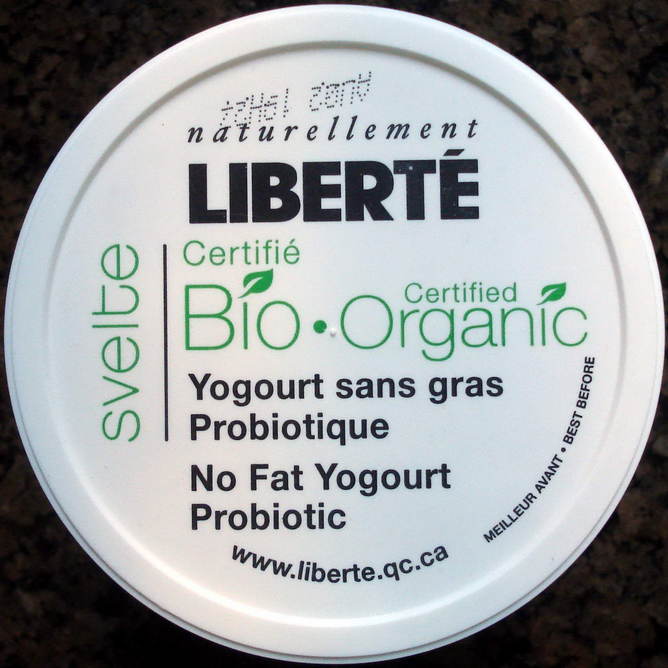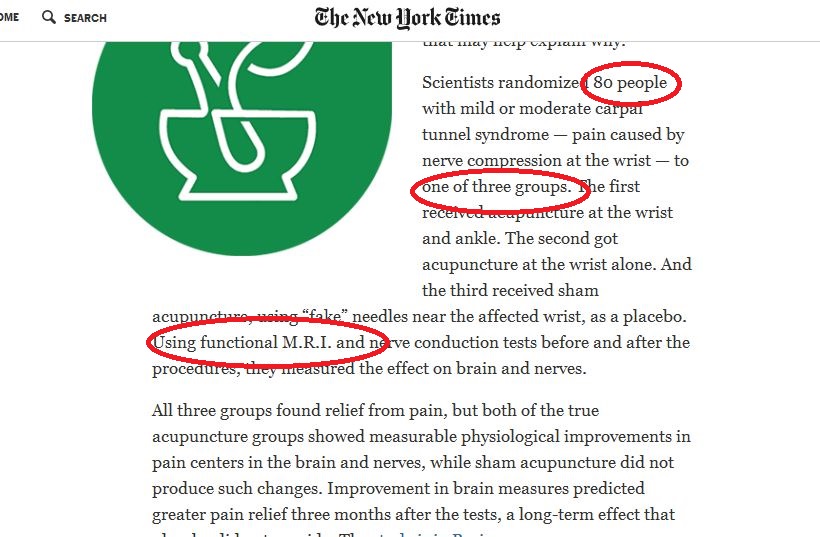Mechnikov and Ehrlich got a Nobel prize in 1908 for their pioneering work regarding phagocytes and immunity, so there is a science basis to living organisms living in us and our health, and some people do have a compromised microbiome, due to medical treatment or bad biological luck (e.g. C. difficile.) In those narrow instances a "fecal" transplant can even restore missing living bacterial organisms and help immunity,(1) but supplement companies use that to insist their "probiotic" products help everyone. It's a scam, and if you read corporate health journalism and claims on social media, you are getting a lot of bizarre health claims that use "scientists" without disclosing the science doesn't involve humans.
See also: Most Americans Get Science News From Corporate Media - And That's Bad

If you believe in magic yogurt, you will be even more impressed if it's French.
Supplements are exempt from FDA approval and can claim lots of magical effects if they simply refute them all in the fine print; by noting FDA has not signed off on any of their magical effects. In 1994, President Clinton claimed he was going to make medical care cheaper by giving a boost to the supplement market. Democrats overwhelmingly embrace alternative medicine compared to Republicans so he was cheered on by constituents but the Dietary Supplement Health and Education Act (DSHEA) was also bipartisan. Utah had a lot of supplement companies already, and so Senator Orrin Hatch joined Senator Tom Harkin and President Clinton in foisting this off on the country using populist rhetoric to claim they were standing up to expensive Big Pharma.
Corporate science journalism loves mouse studies and epidemiology - and that's bad
As you can imagine, government endorsement by the President of the United States set off a boom in revenue, and therefore a boom in scholars willing to do mouse studies or create statistical correlation to show effects and get money from the taxpayer-funded National Center for Complementary and Alternative Medicine, a 1998-rebrand of the Office of Alternative Medicine.(2) Journalists often don't know the difference between mouse studies and real trials so in a recent analysis corporate journalism was found to be a large part of the problem in Google search results on probiotics and how fraud is common. To Google, the New York Times is a legitimate source, even though they skew hard toward alternatives to medicine and often promote claims that aren't back by science, like in this acupuncture example.

Woo woo woo. All woo.
Well, why wouldn't NYT journalists be fooled by acupuncture studies the same way they are fooled by lawyers at Center for Science in the Public Interest? Our own government has thrown billions of taxpayer dollars into the holistic compost heap by rationalizing that every time a study of nonsense fails, science wins, and journalists overwhelmingly travel in the cultural group that is also opposed to applied medicine, energy, and food science. They are ready to believe Big Food and Big Medicine are conspiracies and natural products can do the job better.
Today, only 45 percent of the country accepts that vaccines don't cause autism and 80 percent of the public want food with no DNA. That is what modern science journalism has done; their desire to grab eyeballs to sell ads means they write about the press release of the day rather than ask awkward questions about stories they want to believe.
"Most webpages with information on probiotics are from commercial sources or news outlets but these provide the least complete information, in terms of not discussing potential side effects or regulatory issues," Professor Pietro Ghezzi, from the Brighton and Sussex Medical School said in their statement about the paper. Yes, I read their press release. Press releases are not the problem any more than mouse studies or epidemiology are problems - it's people abusing those three that are the problem. You should not trust Eric Lipton or Danny Hakim or Sheila Kaplan on science and health issues because they wear their political proclivities on their sleeves. Each of them has been busted copying and pasting talking points from trade and litigation groups, from US Right To Know to CSPI, opposed to science and health - unless it is alternatives sold by companies that support them.
The analysis used the first 150 pages of Google search results (date of July 23rd, 2018, on a clean browser, IP address Brussels, Belgium) even though most people don't go past 10 results on the first page - and in the first 10 there is guaranteed to be a paid placement. Somewhere in that first 10 is going to be corporate journalism. And in there will probably be an anonymously-edited Wikipedia page and a list of reasons to be afraid on WebMD. The extent of the problem was shown when the authors used the Cochrane library database to assess the strength of the scientific evidence in the articles they found. Their analysis showed mainstream journalism and corporate claims, though appearing prominently in search results. were the least reliable. They left out side effects and included experiments using mice to make claims about probiotic benefits in humans.(3)
If we are only talking about fancy yogurt, no big deal, but media hype of mouse studies, in vitro claims, and epidemiological scaremongering are dragging us all into the intellectual gutter. Why trust anyone on vaccines or climate change when many who claim to accept those will shrug their shoulders and agree there might be corporate conspiracies when it comes to food, energy, and medicine? The only good thing about the vaccine denial scourge is that it has become bipartisan, which meant states like California tackled it. Now if they would only do the same thing when it comes to sugar, energy, and shampoo bottles.
NOTES:
(1) Weirdly, people donating poop didn't even need to be screened for E. Coli - until a fecal transplant killed someone.
(2) Now the National Center for Complementary and Integrative Health (NCCIH). They keep changing the name, but Integrative Medicine was Complementary Medicine which was Alternative Medicine which was Traditional Medicine which was Folk Medicine.
If any of those ever survive double blind clinical trials, they won't be (insert some new term here) medicine, they will just be medicine.
(3) When President Trump used his increased science and health funding to claim his administration deserved credit for lower cancer deaths, science journalists were all over it, as was the American Cancer Society - yet both routinely tout mouse studies and statistical correlation to claim more people are at risk of cancer than ever. From bacon to baby powder, corporate media is full of nonsense claims about carcinogens. So corporate journalism is completely willing to be critical of bizarre health claims ... if a Republican president makes them.




Comments